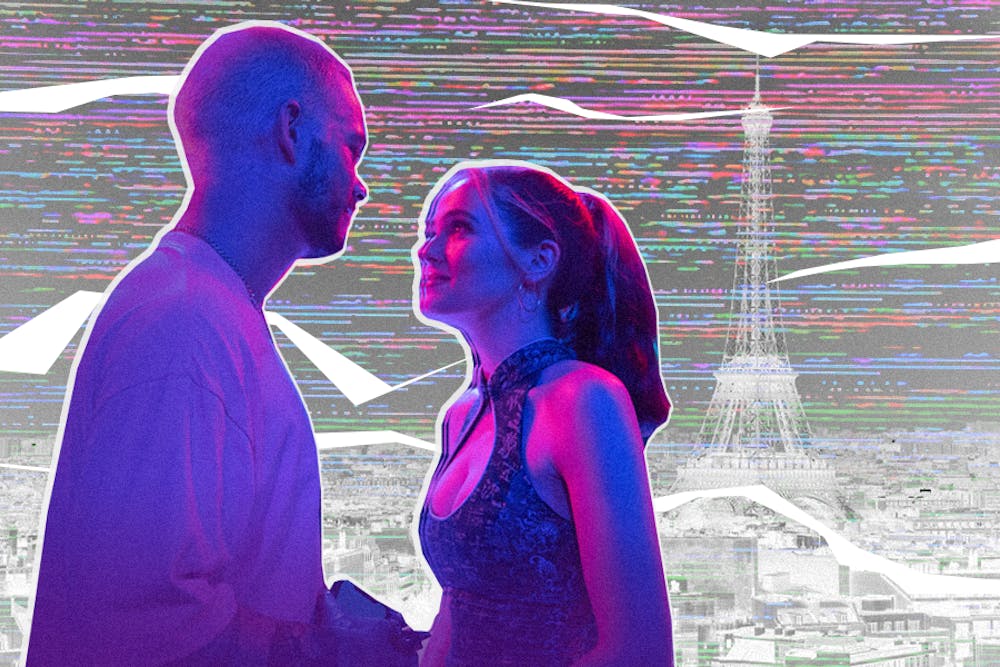What makes us hate a fictional character? Greed? Dishonesty? Immorality?
If those are the ingredients for an unlikeable protagonist, then Not Okay's Danni Sanders (played by Zoey Deutch) fits the bill. Not Okay tells the fictional story of a young white woman with too much privilege and too few morals. At its core, the film’s impact doesn’t lie in the dark comedy of her fraudulent actions, it lies in the viewer's experience. Audiences have responded with a wide array of reactions—including total misunderstanding of the film’s irony and detailed criticism of the protagonist’s actions.
Let's admit it: we all want approval, acknowledgment, and success. But the average person doesn’t elaborately lie about experiencing PTSD just for their five seconds of fame. Danni, though, isn’t the average person.
Hulu’s new film seems dramatic and impossible, but it’s rooted in real trends fabricated by our current sociocultural landscape. Like Danni, the average young person wants to be accepted by their peers both online and offline. People want tangible markers of success, but they also (allegedly) want happiness. Danni wants those things too—but her questionable integrity and cushy upbringing lead her to pursue those wants by whatever means necessary.
Danni’s romantic interest in bleach–blonde influencer Colin, played by Dylan O’Brien, drives her to fake a trip to Paris for a writer’s retreat in hopes of winning his affection. Soon after touting her photoshopped Parisian escapades on Instagram, news breaks of multiple terrorist attacks across Paris, including the Arc de Triomphe, the supposed background of Danni’s latest post. She finds herself at a crossroads: to lie or not to lie. After receiving an outpouring of concern from followers, friends, family, and a certain blond boy toy, she quickly finds herself spinning a web of lies about her "near–death experience" at the Arc de Triomphe bombing.
The film is divided into chapters detailing the events that follow Danni’s rise to fame and fall to infamy. Trailers leading up to the film warned of an “unlikeable female protagonist” and showed a brief arc of Danni’s lies and ultimate defeat. By revealing the ill–fated end to her story in the film’s trailers, viewers are placated by the knowledge that Danni’s lies eventually blow up in her face. It’s easy to find satisfaction in the downfall of the antagonist, or in this case, the distasteful protagonist. Under the direction of Quinn Shepard, the film challenges the phenomenon of social media activism through the white woman persona, but also explores the effects of cancel culture.
How individuals respond and interpret this film reflects our current sociocultural landscape. The film covers topics from gun violence to terrorism to post–traumatic stress disorder as well as interpersonal relationships. But from a more meta perspective, it brings viewers to question how we deal with immorality and shaming in an era that is chronically shared, reposted, and judged.
Harassment is a rampant byproduct of cancel culture in which shared anger is directed towards tormenting offenders rather than addressing the fallout from an offender's actions. Not Okay attempts to subvert this phenomenon through its post–climax scenes.
When Danni attempts to recover her previous life, she finds herself at a new support group for online shaming. She’s asked if she’s made any direct amends and realizes that she doesn't know whether or not she’s truly grown into the changed person she should be. The acknowledgement is simple, honest, and leads her to seek out a former friend to personally apologize.
After Danni is confronted with the aftermath of her selfish charade, she sees the deep wounds she inflicted through her deceit. Her actions were no different than those who exploit others’ struggles or turn a blind eye to injustice. If the goal of public shaming is to rectify wrongdoings, then we are probably going about it all wrong. Amends are typically better made when led with the needs of those wronged, rather than shining a spotlight on the perpetrator.
While Not Okay probably won’t make it to the hall of fame for cinematic masterpieces, it certainly raises poignant questions about how we regard morals and judgment in our digital age.

